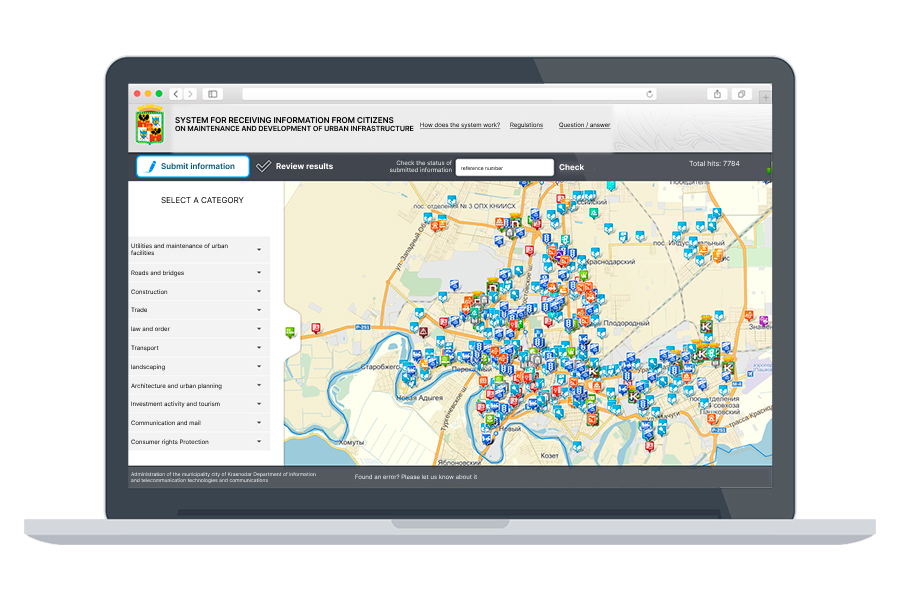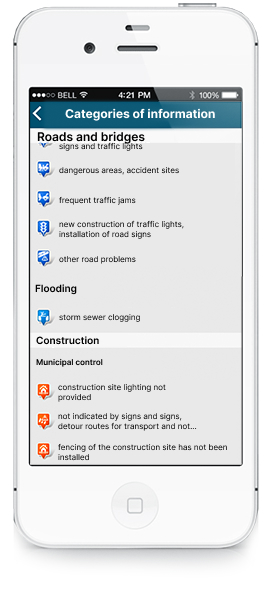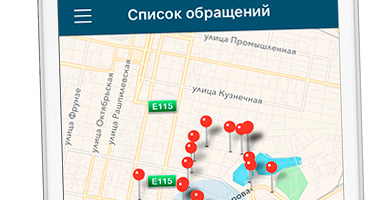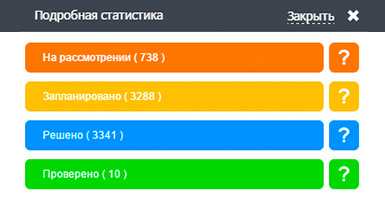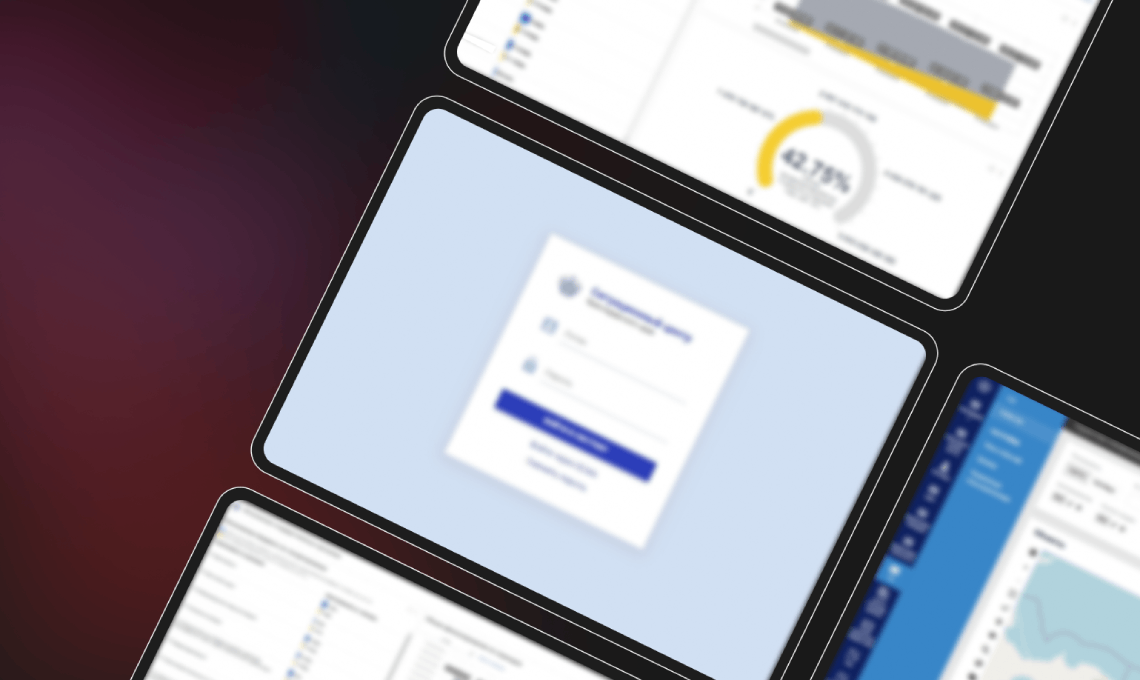About project
Facts
Customer

The Krasnodar municipality
Krasnodar is a city and the administrative centre of the Krasnodar region, Russia, located on the Kuban River.
Krasnodar is the economic centre of southern Russia. For several years, Forbes magazine named Krasnodar the best city for business in the country. The industrial sector of the city has more than 130 large and medium-sized enterprises.
Krasnodar is a highly developed commercial area and has the largest annual turnover in the Southern Federal District of Russia. Per capita, the city has the highest number of malls in the country. Note that in the crisis year 2009 turnover of Krasnodar continued to grow, while most of the cities showed a negative trend in the sale of goods.
Goal

Challenge
Krasnodar is a city with a population of almost 1 million people. City Hall is explicitly or implicitly responsible for many infrastructure issues including roads, bridges, traffic organization, road lights, electricity, green areas, markets, construction areas, public transport, communications and others.
In such a wide area of responsibility, investment prioritization has significant value for the city budget.
On the other hand, every Russian resident has a right to appeal to the government at any level and the government is supposed to give a detailed response.
Thus, City Hall considered the best practice to combine approaches and create an information system where people can post an infrastructure problem. Then the system makes automatic aggregation of similar appeals, so authorities can focus primarily on the issues that disturb a lot of citizens.
Tasks
To create a website and mobile applications that allows citizens to send appeals with issue photos and location.
To create an internal portal with issues classification, appeals routing and communication with citizens.
To integrate the internal portal with a city workflow system.
Implementation
Spellsystems delivered a web-based solution, including mobile applications, a website and an intranet portal with workflow system integration.
The mobile applications and the website allow citizens to post their appeals, attach media files and use a map or automatic geolocation to locate the issue. In addition, users can see issues posted by others and vote for them. Users can access all posted appeals, their ranks and government responses through their accounts. iOS and Android mobile applications are also available in the mobile stores.
The internal portal provides automatic issues classification and routing. First, the issues get sorted by their themes. Then the issues are routed to the City Hall departments responsible for the specific theme and location. Issues are ranked by their popularity. There are two general kinds of issues: issues that can be solved in a short time and issues that can not be solved so fast. Usually complicated, expensive tasks like road reconstruction become the issues of the second category. Depending on the issue's complexity, City Hall solves it in a general order or plans the solution for the future, because of the current budget limitations. In this case, citizen, who posted this issue, and citizens, who voted for it, is getting a response with information on taken actions. When the issue is solved, it comes to the “solved” state and citizens can check it and give the feedback. When the issue solution is planned, the issue comes to the “planned” state, and gets the expected closing date.
The solution is built consists of two separate parts:
Results
Technologies
Objective-C (iOS), PHP
Platforms
Team
- 1 project manager
- 1 technical architect
- 1 software architect
- 2 PHP programmers
- 1 Java (Android) programmer
- 1 Objective-C programmer
- 1 C# (mobile) programmer
- 1 user interface designer
- 1 JavaScript programmer
- 1 HTML programmer
Similar cases studies
The platform aims to support the Governor during the preparation and decision-making process by providing information and expert analysis. It also aims to enhance collaboration and improve efficiency among state executive bodies and municipal authorities.
